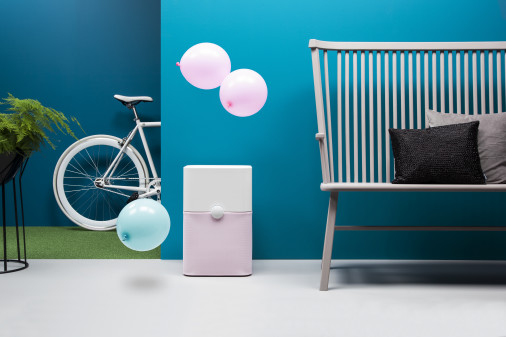Stockholm, Sweden, June 27, 2016 – The increased risk of developing heart disease due to daily air pollution exposure are highlighted in several new studies, reports Blueair, a global leader in mobile indoor air cleaning technologies.

“The latest findings firmly underline the cradle-to-grave threats to human health and wellness by air pollution, both inside our homes and workspaces and outside on the street,” said Bengt Rittri, CEO of Blueair, the company he founded twenty years ago.
A study published in May in the Endocrine Society’s Journal of Clinical Endocrinology & Metabolism concluded that exposure to air pollution can worsen blood sugar levels, cholesterol and other risk factors for heart disease. The study looked at the effects of air pollution exposure on 73,117 adults living in southern Israel based on an analysis of 600,000 blood samples taken from those studied.
The study’s senior author, Victor Novack, MD, PhD, of Soroka University Medical Center and Ben-Gurion University in Beer Sheva, Israel, said that while air pollution is linked with relatively small changes in cardiometabolic risk factors, the ‘continuous nature of exposure and the number of people affected gives us cause for concern’.
The health consequences of breathing polluted indoor air are also underscored in a recent observational study of a community in northeastern Iran published in the American Heart Association journal Circulation. The findings indicated that long-term exposure to household air pollution from lighting, cooking or heating with fuels such as kerosene or diesel increased the risk of heart attacks and death by an overall 6 percent during a ten year period.
The researcher’s also said exposure to bad indoor air quality specifically increased the risk of cardiovascular death by 11 percent and clot-caused heart disease by 14 percent.
Sumeet Mitter, M.D., lead researcher and cardiovascular disease fellow at Northwestern University’s Feinberg School of Medicine in Chicago, Illinois, described his study as ‘the first to find a significant and independent increased risk for all-cause, total cardiovascular disease and heart attack deaths due to increasing lifetime exposures to household air pollution from kerosene or diesel burning’.
“The scientific evidence detailing how polluted air over a lifetime contributes to heart disease and other threats to our wellbeing is extensive, but we are not powerless. While we are unable to improve the air outside, we can take proactive, individual steps to head off airborne pollutants to create safer indoor environments by investing in indoor air purifiers such as those from Blueair that remove contaminants,” said Bengt Rittri.
How can we protect ourselves?
Stay aware: Blueair’s Aware Air Monitor provides continuous updates about the current quality of your indoor air and pollution outside on the street.
Protect yourself: Create a safe indoor clean air haven by using a Blueair air purifier(with filters that set industry standards for efficiency) that sucks in the pollutants before you do.
Listen to your body: ‘Don’t overdo it’ by ignoring the signals when you get a headache, an unexplained cough or red and itchy eyes.
About Blueair
Sold in over 52 countries around the world, Blueair delivers home and office users cleaner indoor air for enhanced user health and wellbeing faster than any competing air purifier thanks to its commitment to quality, energy efficiency and environmental care. A Blueair air purifier works efficiently, silently to remove airborne allergens, asthma triggers, viruses, bacteria and other pollutants. www.blueair.com